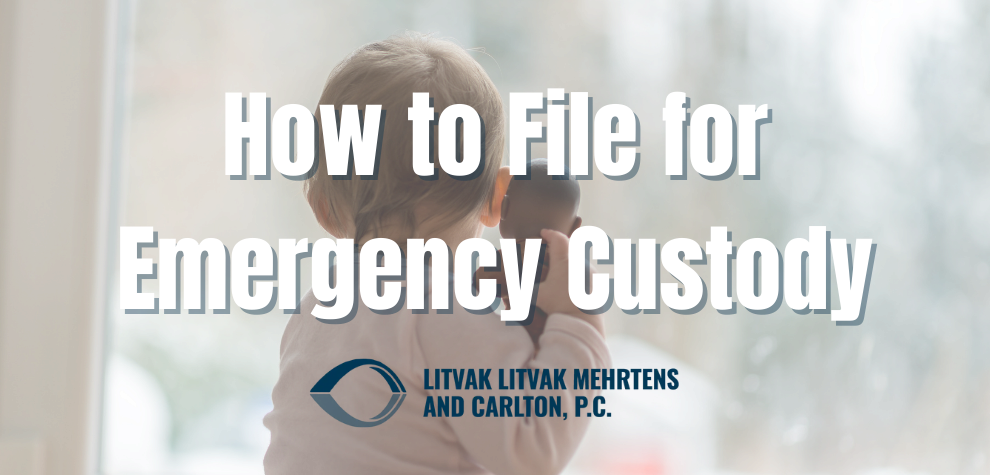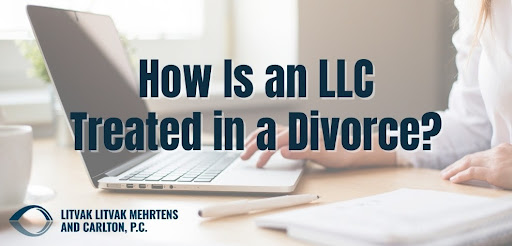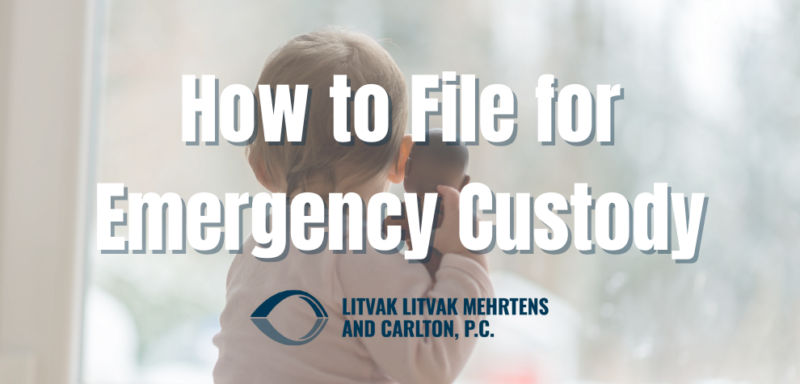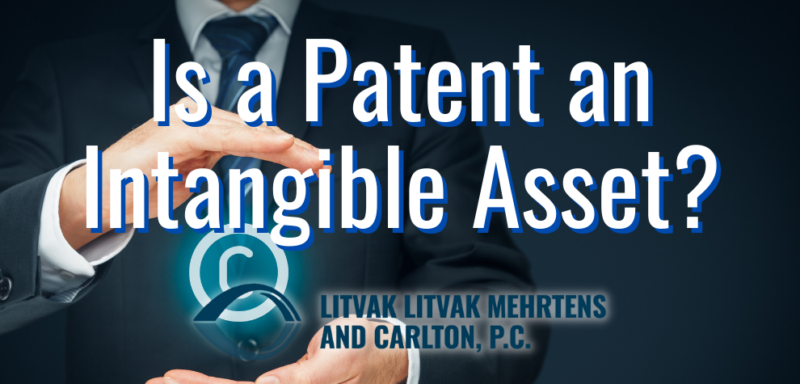Discovering that your child may be unsafe with their other parent is a horrible feeling. You may be tempted to act hastily. However, you’ll need to stay calm to gather proof of child endangerment. Many concerned parents come to us with the same question of how to file for emergency custody.
You need to present evidence to safeguard your child in a Colorado emergency motion hearing. Obtaining a court order restricting the unhealthy parent’s rights is the best course of action.
Parents can put their children in danger with substance abuse, drinking too much alcohol, or having a mental health problem. However, it does not have to be the parent who puts the children in danger. Significant others and third parties may also put the children in danger.
Do you believe your co-parent, their degree of parental commitment, living arrangement, or other custody-related concerns are endangering your child? If that’s the case, you’ll need the help of an experienced Denver child custody lawyer. Litvak Litvak Mehrtens and Carlton can suggest a course of action that will not only assist you in avoiding legal repercussions but will also help you keep your child safe.
Reasons For Emergency Custody

In Denver, before a judge’s decision awards an emergency custody request to the other parent in a custody hearing, the petitioner must convince the court that a child is in danger, emotionally or physically.
Endangerment includes:
- Physical or sexual child abuse.
- Domestic violence.
- Drug or alcohol abuse.
- Severe mental health concerns.
The type of emergency, including bodily and emotional risk, is considered by the judge. They also evaluate more severe kinds of neglect, such as:
- Leaving the child alone for an extended amount of time
- Failure to pick up the child regularly from school or daycare
- Neglect of basic requirements such as food and sanitation
What To Do Before Filing An Emergency Motion For Child Custody?

Judges are hesitant to limit or prohibit a parent’s or child’s contact. Before you go any further, consider your options. You don’t want to look like you’re trying to control or punish the other parent. Some parents have been penalized for filing a motion that the court thought was without merit.
It is best to have unbiased advice from someone familiar with Colorado family law before taking legal action. Then keep in mind that a circumstance that you think is an immediate risk may not be considered endangerment.
The other parent, for example, may be more permissive or strict than you. They may allow things you disagree with, such as a later curfew or letting your child watch specific television programs. It’s also possible that your co-parent associates with people you consider negative influences.
These circumstances may warrant a petition to adjust parenting time or a parenting agreement. They aren’t sufficient grounds for obtaining an emergency child custody order removing the other parent’s custody. Keep in mind that a scenario that you feel disturbing may not be a life-threatening situation.
Sometimes, these things can justify a petition to modify parenting time or changes to a parenting agreement. These are not reasons to file an emergency order to remove the other parent’s custody. It’s important to remember that what you find troubling may not be dangerous.
How To File For Emergency Custody
First, you must file for an emergency custody hearing with the court. Depending on your jurisdiction in Colorado, you may be able to submit a motion on your own with the assistance of a Pro Se office or a court clerk. However, this is a critical and serious topic. It may be better to seek the help of an experienced Colorado family lawyer who has dealt with similar situations in the past.
You must offer factual evidence of child endangerment when you file an emergency order. This is according to the Colorado Revised Statutes addressing domestic abuse (CRS 14-10-129).
This evidence may include medical records, electronic communications from the other parent, photographs and video, police reports, and third-party communication from teachers, caregivers, medical personnel, and other persons acquainted with your child.
In most cases, the court hears evidence in an emergency motion case within 24 hours. If the judge agrees, they grant temporary emergency custody. The other parent will only be able to see the child under the supervision of a neutral third party once the court makes this decision. The third-party may be a qualified mental health professional.
The court schedules a follow-up hearing after 14 days. It listens to the evidence during the hearing. Then it makes a final decision about custody and visitation. The final judgment might keep the current arrangement, add new limits for the other parent, or remove existing restrictions. In some situations, the court may completely dismiss the request.
Long-Term Neglect or Abuse Versus Imminent Danger
Establishing that your child is in immediate danger requires the use of recent evidence. On the other hand, if there is evidence of long-term abuse or neglect over an extended period, a different approach is required.
An important reason to make this difference is to avoid sanctions if the court concludes that your application for emergency child custody limitations was “frivolous, substantially groundless, or highly vexatious.”
Examples of sanctions include orders to pay the other parent’s court fees or even restrictions on your parenting time. It’s important to note that having a motion denied does not automatically mean you’ll face some consequences.
Avoid Making Serious Mistakes
We understand that fearing for your child’s safety is the worst feeling in the world. Naturally, you want to do whatever it takes to keep your children safe. However, it is critical to take deliberate steps to prevent getting yourself into legal trouble that could compromise your access to your children.
Don’t Violate Parenting Time Agreements
By breaking a court-ordered parenting time agreement (for example, by keeping your child in your care while they should be with the other parent), you could face prosecution for parental kidnapping. That’s unless you can show it was the only way to safeguard your child.
The potential penalty for parental kidnapping is years in prison and tens of thousands of dollars in fines. Again, call the police if you fear your child is in immediate danger.
However, if you’ve recently become aware of what you believe is an impending threat to your child under your child custody arrangement, don’t hesitate to get in touch with Litvak Litvak Mehrtens and Carlton right away.
Don’t Seek Safety Across State Lines
Many Denver child custody agreements include clauses prohibiting the child from crossing state lines. If you can prove that leaving the state with the child was required to prevent irreparable harm, the court will provide exceptions. These exceptions are similar to violations of visitation arrangements.
However, if the court does not agree that leaving Colorado with your child was the appropriate decision, you may face jail time, hefty fines, and restricted custody.
Possible Court Outcomes
The court may determine that your request for emergency custody limitations is legitimate and that a permanent change is required to ensure your child’s safety. If so, the new custody orders may include the following items:
Loss of Custody
The courts may decide that stripping your co-parent of all physical and legal custody is the best course. This ensures they do not represent a risk to the child.
Supervised Visitation
When a custody order specifies supervised visitation, it indicates that your co-parent is still allowed to see the child. They may only do so in the presence of a court-appointed supervisor.
Reduced Visitation
The courts may rule that a loss of custody is not necessary. However, the court may propose that your co-contact parent has less time with the child.
How Long Does It Take To Get Emergency Custody?

The courts set up an emergency hearing within 24 hours with our assistance and issue emergency restrictions on the same day. Within 14 days, the courts hold a second hearing to evaluate whether it should implement a permanent change in custody.
What Happens After Emergency Custody Is Granted?
A formal hearing happens later if the court chooses to grant emergency temporary custody order. The co-parent will be notified of the formal hearing and gets the opportunity to make their case to the court. The temporary custody order ends on the date of the official hearing.
Penalties for Wrongful Accusations

If the accusation is unfounded, vexatious, or frivolous, the judge has the authority to punish the individual who brought it. Thus, consulting with an attorney before filing your motion is essential.
Paying the other side’s attorneys’ fees can be one of the penalties. However, losing a hearing doesn’t mean you’ll have to pay the other side. Sometimes there is a genuine disagreement over the other parent’s behavior and whether it constitutes endangerment.
In any case, you should prioritize protecting your children and consult with an attorney before filing a motion.
Contact Litvak Litvak Mehrtens and Carlton For Your Child Custody Case
We recognize that Denver child custody is one of the most stressful aspects of your divorce at Litvak Litvak Mehrtens and Carlton. You and your family can move forward to a more peaceful future with the help of our skilled legal counsel. Our law firm regularly handles emergency orders in Denver family court matters, and we are ready to assist you.
We’ll go over your legal options and aid you with obtaining custody during this trying time. We help you establish a solid factual foundation, so you are not accused of filing a frivolous suit.
We handle a range of family law issues including child support, alimony in Colorado, and retirement assets and divorce. Please call us now at (303) 951-4506 to schedule a free consultation about how to file for emergency custody with one of our experienced and caring Denver divorce lawyers and child custody attorneys.






